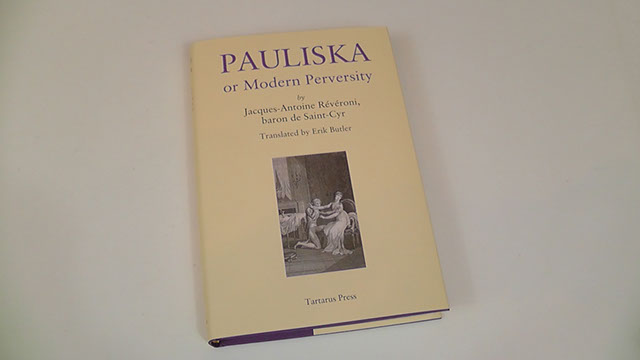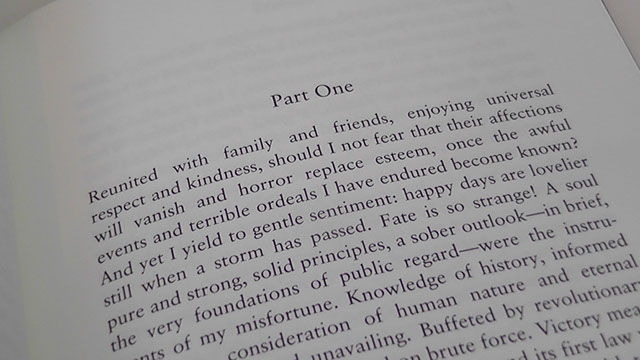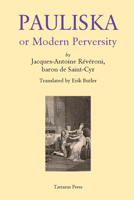Pauliska is out of print as a limited edition hardback.
Sorry - this book is now out of print
Pauliska, or, Modern Perversity
by
Jacques-Antoine Révéroni,
baron de Saint-Cyr
Translated by Erik Butler
This is the first English translation of Révéroni de Saint-Cyr’s Pauliska, or Modern Perversity (1798), a minor classic of the French Gothic. It concerns a noble young mother buffeted by misfortune, flying from one disaster to the next, only to fall victim, time and again, to seemingly supernatural depravity. . . . In the course of her adventures, Pauliska traverses the greater part of Europe and winds up in the clutches of mad scientists, libertines, political conspirators, smugglers, counterfeiters, and more.
Pauliska is very much a part of the roman noir genre, which countered the optimistic mood of the Age of Enlightenment with a fatalistic vision of individual and communal life at the mercy of ancestral curses, unspeakable secrets, and dark desires. Despite its debt to de Sade’s Justine, its contradictions, sensationalistic title and generic traits, Pauliska displays genuine originality and gusto.
Jacques-Antoine Révéroni, baron de Saint-Cyr (1767-1829) belonged to a family of Italian extraction that followed Catherine de’ Medici to France. He interspersed writing with an undistinguished military career. Failing to gain a foothold in the republic of letters, Révéroni ultimately went insane and died more or less forgotten.
Cover illustration from the first edition of Pauliska, Lemierre, Paris, 1798.
Erik Butler has translated some half-dozen literary works from European languages, including Giambattista Marino’s epic poem about King Herod, Massacre of the Innocents (2015), Léon Bloy’s account of the Franco-Prussian War, Sweating Blood (2016), and Oskar Panizza’s learned treatise on swine-worship as the root of human culture, The Pig in Poetic, Mythological, and Moral-Historical Perspective (2016). He has also written two cultural histories of vampirism and a study on martial representations of language in the sixteenth and seventeenth centuries. He lives in San Francisco.
Review:
"Révéroni’s deliciously lurid novel is a heady dram of vintage gothic . . . With its many moments of fade-to-black fainting, hairbreadth escapes, and rationalizations of what may be supernatural, this book is a high melodrama sure to appeal to fans of the writings of Ann Radcliffe, Matthew Gregory Lewis, and other classic gothicists." Publishers Weekly
Copyright Tartarus Press 2026









